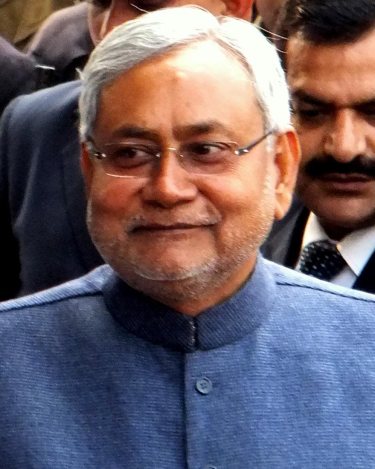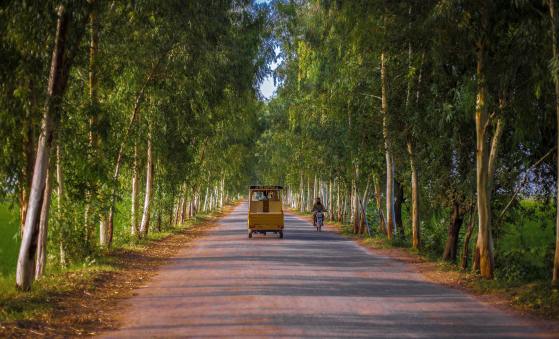
Nitish Kumar, the 74-year-old leader who has dominated Bihar politics for two decades, will become the eastern Indian state’s chief minister for a record tenth time after his coalition won a landslide victory in results declared on Friday, November 14.
The National Democratic Alliance, led by Kumar’s Janata Dal (United) party and Prime Minister Narendra Modi’s Bharatiya Janata Party, won 202 seats in the 243-member state assembly. The opposition Mahagathbandhan alliance was reduced to 35 seats.
Bihar, with a population of roughly 130 million, is India’s second most populous state. Bordering Nepal to the north, it remains amongst the country’s most economically challenged regions. Young people make up a large share of its population, and many migrate to other states seeking employment opportunities.
The election, held across two rounds on 6 and 11 November, drew the highest voter turnout since India’s first polls in 1951. Nearly 67 per cent of registered voters cast their ballots across 243 constituencies.
Vote counting began at 8 am on Friday at 46 centres across the state. By afternoon, the scale of the victory became clear. The BJP won 89 seats, emerging as the single largest party in Bihar for the first time in the state’s history. Kumar’s party secured 85 seats, nearly doubling its count from the 2020 election when it won just 43.
The opposition Rashtriya Janata Dal, which had won 75 seats five years ago, slumped to 25. Its leader, 35-year-old Tejashwi Yadav, retained his family’s traditional seat of Raghopur, defeating his BJP rival by 14,532 votes. The Indian National Congress won only six of the 61 seats it contested.
Political activist Prashant Kishor’s newly formed Jan Suraaj Party, despite fielding candidates in 238 constituencies and running a high-profile campaign, failed to win a single seat.
Prime Minister Modi addressed party workers at BJP headquarters in New Delhi on Friday evening. “The people of Bihar have voted for a developed and prosperous state by breaking all records,” he said, beginning his speech with “Jai Chhathi Maiya,” invoking a festival sacred to Biharis.
Modi criticised the opposition, saying voters had rejected what he called the “jungle raj” of the past. The term refers to the perceived lawlessness during the 1990s tenure of Lalu Prasad Yadav, Tejashwi’s father, who led Bihar as chief minister.
The prime minister said the Bihar victory would help his party’s prospects in West Bengal, which goes to polls next year. “The victory in Bihar has paved the way for the BJP’s triumph in Bengal,” he said.
Kumar’s victory came despite widespread speculation about his political future. BJP leaders had stopped short of formally naming him as the chief ministerial candidate before polls, repeatedly saying the decision would be made by elected legislators after the results. Union Home Minister Amit Shah told an interviewer in June that while the NDA would fight under Nitish Kumar’s leadership, “who will be Bihar’s chief minister will be decided in time.”
The two leaders did not hold any major joint rallies during the campaign, feeding speculation about tensions within the alliance. The press conference to release the coalition’s election manifesto lasted just 26 seconds, with Kumar not speaking.
Yet the Janata Dal (United) delivered its best performance since 2010, nearly doubling its seat count from the previous election.
Union Minister Chirag Paswan, whose Lok Janshakti Party (Ram Vilas) won 19 seats as part of the ruling coalition, said he was “glad the NDA’s performance has debunked all the false narratives spread by opposition leaders.”
Congress leader Rahul Gandhi called the results “truly surprising” and said on social media that his alliance “could not achieve victory in an election that was not fair from the very beginning.” He said his party would review its performance. The opposition has alleged widespread irregularities in voter registration, claims the Election Commission has dismissed as factually incorrect.
Several constituencies saw dramatic shifts in voting patterns. In Rupauli, the Janata Dal (United) increased its vote share from 34.5 per cent in 2020 to 55.5 per cent. In Amarpur, the party’s support jumped from 33.1 per cent to 53.8 per cent.
Among the notable winners were Deputy Chief Ministers Samrat Choudhary and Vijay Kumar Sinha, both from the BJP. Popular folk singer Maithili Thakur, contesting her first election on a BJP ticket, won from Alinagar.
Leaders from the ruling coalition have begun meeting Kumar to discuss government formation. The new government is expected to be sworn in within days, extending Kumar’s near-continuous hold on Bihar’s top job since 2005.
Article image from here.




